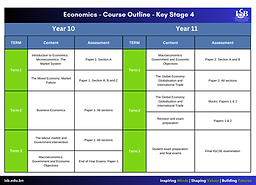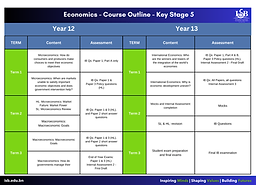
Economics (KS4 & Pre-U)
Economics is a social science characterized by interdependence, which focuses on how people interact with each other to improve their economic well-being, influenced and enabled by their values and their natural surroundings.
At ISB we intend for students who study economics to appreciate that the economic world is dynamic in nature and constantly subject to change.
Furthermore, we also intend to show that:
-
Economic theories are based on logic and empirical data, using models to represent and analyse this complex reality. Individual and collective motivations and behaviours are complex and diverse, and their understanding entails the interaction of a variety of disciplines such as philosophy, politics, history, and psychology.
-
Economic decision-making impacts the relative economic well-being of individuals and societies.
-
The central problems of economics are scarcity and choice. This forces societies to face trade-offs, opportunity costs and the challenge of sustainability.
-
Debates exist in economics regarding the potential conflicts between economic growth and equity and between free markets and government intervention.
-
Endless economic growth, based on the consumption of finite resources, cannot continue indefinitely. New economic models and social movements have challenged mainstream opinion about the purpose of growth and how the economy could be redesigned to support long-term prosperity.
Subject Staff

Head of Faculty

Teacher

Curriculum Journey
Business Curriculum
Which degrees does this IB subject complement?*
Business Studies
History
International Relations
Management Studies
Mathematics
Public Administration
*The degrees listed are some examples of courses that the subject supports but this is not an exhaustive list. In addition, please note that these subjects are not compulsory for each degree. Please consult individual university websites for specific requirements for their courses.




